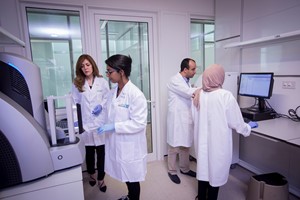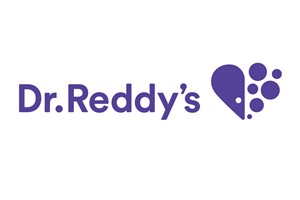Less Than 41% Of Pregnant People Were Screened for HCV in 2021
In 2019, Quest Diagnostics and hc1, the bioinformatics leader in precision testing, unveiled Quest® Lab StewardshipTM, powered by hc1®, an innovative new service that employs machine learning to harmonize laboratory testing across health systems in order to help optimize laboratory test utilization.
Now, the company developed a new test panel to include HCV antibody testing with reflex to quantitative real-time PCR, in response to findings from a Quest Diagnostics Health Trends® study, published in Obstetrics & Gynecology in June 2022. According to this peer reviewed study, less than 41% of pregnant people were screened for HCV in 2021, based on Quest Diagnostic’s laboratory testing of more than 5 million pregnant patients. Another finding of the study was that the percentage of people with Medicaid health insurance screened was 25-35% lower than that of those with commercial insurance.
“Our Health Trends research revealed that despite guidelines recommending HCV screening in pregnancy, many people are not receiving the testing they need. Individuals in underserved communities are most likely to experience this gap in care,” said Damian “Pat” Alagia, MD, Senior Medical Director, Women’s Health, Quest Diagnostics. “Screening for HIV, HBV and syphilis is already standard in obstetric panels, and it is no coincidence that screening rates for these diseases during pregnancy are more than double the current rate as for HCV. By adding HCV screening to our obstetrics panel, physicians will be more likely to deliver guideline-based care that reduces HCV infection during pregnancy and fosters a positive outcome for the patient and their newborn.”
“Our new test service is a prime example of how Quest Diagnostics illuminates care gaps from its uniquely large laboratory dataset and then creates solutions to improve patient care and public health,” said Harvey W. Kaufman, MD, Senior Medical Director, Head of the Health Trends Research Program for Quest Diagnostics, and a lead of the study published in Obstetrics & Gynecology.
In Recent Years, Hepatitis C Infections Have Risen in Pregnant People
Obstetric panels are usually performed early in pregnancy and include guideline-recommended tests, such as complete blood count (CBC), blood typing, hepatitis B, syphilis, and rubella, to help guide clinical decisions affecting the pregnancy and mother’s health.
In recent years, hepatitis C infections have risen in pregnant people and other populations in the United States, largely due to increased intravenous drug use. Between 2020-2021, the United States Preventive Services Task Force, American College of Obstetricians and Gynecologists, and the Society of Maternal-Fetal M âedicine issued practice guidance recommending one-time hepatitis C screening during pregnancy, while the CDC issued guidance recommending HCV screening for all pregnant people except in settings where the prevalence of HCV infection is less than 0.1%.
Hepatitis C is the most common bloodborne infection in the United States and is a leading cause of liver-related morbidity and mortality. An estimated 1,700 infants were born with HCV infection (acquired in utero) each year between 2011 and 2014.
Besides taking all the necessary tests, a pregnant individual needs to pay attention to nutrition and vitamin intake. The American Congress of Obstetricians and Gynecologists (ACOG) explained that a pregnant person’s diet should consist of proteins, carbohydrates, fats, vitamins and minerals. As a general rule, it’s possible to get the right vitamins and nutrients during pregnancy solely through regular food intake and a balanced diet. So, although it is important to note that multivitamins are not intended to replace food, including a multivitamin supplement can help account for any lack of vitamins or minerals in a diet.
About Quest Diagnostics Health Trends®
Quest Diagnostics Health Trends® is a series of scientific reports that provide insights into health topics, based on analysis of HIPAA-compliant, objective clinical laboratory data, to empower better patient care, population health management and public health policy. The reports are based on the Quest Diagnostics database of 60 billion deidentified laboratory test results, believed to be the largest of its kind in healthcare. Health Trends has yielded novel insights to aid the management of allergies and asthma, prescription drug misuse, diabetes, Lyme disease, heart disease, influenza and workplace wellness. Quest Diagnostics also produces the Drug Testing Index (DTI)™, a series of reports on national workplace drug positivity trends based on the company’s employer workplace drug testing data.
About Quest Diagnostics
Quest Diagnostics empowers people to take action to improve health outcomes. Derived from the world’s largest database of clinical lab results, their diagnostic insights reveal new avenues to identify and treat disease, inspire healthy behaviors and improve healthcare management. Quest annually serves one in three adult Americans and half the physicians and hospitals in the United States, and their 50,000 employees understand that, in the right hands and with the right context, diagnostic insights can inspire actions that transform lives.
By Cordin Arsene
https://healthcareweekly.com/












